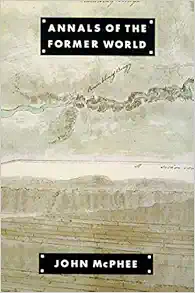
Rising from the Plains
Description
From Library Journal Although it stands well on its own, this book can be viewed as a continuation of McPhee's Basin and Range ( LJ 4/1/81) and In Suspect Terrain ( LJ 4/1/83). As in those earlier works, the central theme of this book is the geology of an area near Interstate 80, this time the Rocky Mountains and adjacent terrain in Wyoming. McPhee skillfully weaves together the personal history of Rocky Mountain geologist David Love and his family with the geological history of the region, chronicling both the story of pioneering homesteaders and that of ancient seas, volcanoes, and episodes of mountain building. He also details the search for resources and the environmental effect of their discovery, as well as the inner workings of geology. Recommended, especially for public libraries. Joseph Hannibal, Cleveland Museum of Natural HistoryCopyright 1986 Reed Business Information, Inc. Excerpt. © Reprinted by permission. All rights reserved. Rising From The PlainsThis is about high-country geology and a Rocky Mountain regional geologist. I raise that semaphore here at the start so no one will feel misled by an opening passage in which a slim young woman who is not in any sense a geologist steps down from a train in Rawlins, Wyoming, in order to go north by stagecoach into country that was still very much the Old West. She arrived in the autumn of 1905, when she was twenty-three. Her hair was so blond it looked white. In Massachusetts, a few months before, she had graduated from Wellesley College and had been awarded a Phi Beta Kappa key, which now hung from a chain around her neck. Her field was classical studies. In addition to her skills in Latin and Greek, she could handle a horse expertly, but never had she made a journey into a region as remote as the one that lay before her.Meanwhile, Rawlins surprised her: Rawlins, where shootings had once been so frequent that there seemed to be--ascitizens put it--"a man for breakfast every morning"; Rawlins, halfway across a state that was spending per annum far more to kill wolves and coyotes than to support its nineteen-year-old university. She had expected a "backward" town, a "frontier" town, a street full of badmen like Big Nose George, the road agent, the plunderer of stagecoaches, who signed his hidden-treasure maps "B. N. George." Instead, this October evening, she was met at the station by a lackey with a handcart, who wheeled her luggage to the Ferris Hotel. A bellboy took over, his chest a constellation of buttons. The place was three stories high, and cozy with steam heat. The lights were electric. There were lace curtains. What does it matter, she reflected, if the pitchers lack spouts? Copyright © 1986 by John McPhee
Features & Highlights
- Bestselling author McPhee takes us on another exciting geological excursion with this engaging account of life--past and present--in the high plains of Wyoming.





